Freedom, Repression and "Freedumb" in the Age of Covid
Living with Government Restrictions
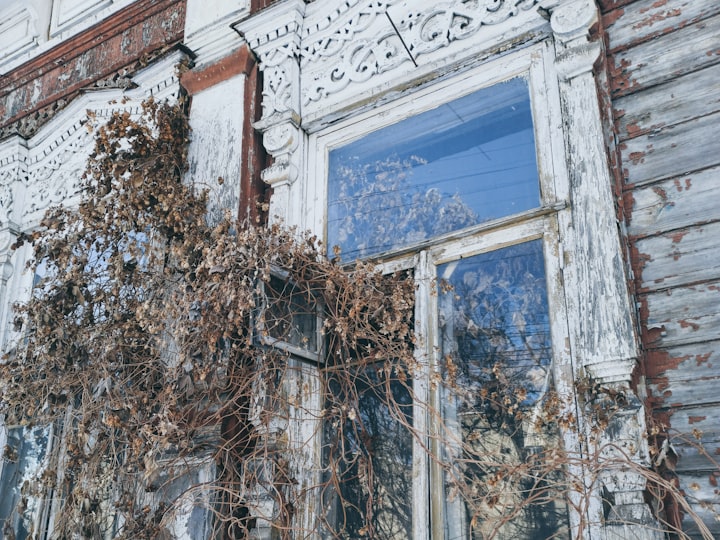
To say that my father’s life and the circumstances in which he grew up was “no joke” would be tantamount to stating that Putin’s war in Ukraine is no simple military exercise.
My father’s home was in Ingria, a little-known area, but never a country or nation, in what is now officially within Russia’s borders, just east of the border with Finland. It had been part of Sweden’s realm as had Finland, and exchanged hands between Sweden and Russia for hundreds of years, until it was finally ceded to Russia.
My father’s family were descendants of earlier Lutheran Finnish peasant farmers, ethnically and linguistically, who had been enticed by Sweden in the 1600’s to migrate into the area to strengthen Sweden’s hold over this much fought-over land area.
Since the spring of 2020, we’ve had to deal with a myriad of pandemic difficulties and far more government-imposed bans and controls that impacted and curtailed our lives than ever before. I was often struck by similarities that my father had endured beginning in 1924 in Stalinist Russia.
But… what if government control over every aspect of life was the norm from which there was no escape…and not just a temporary measure as it had been for us?
Welcome to my father’s early life….
Travel and Border Closures
2020-2022 91% of the world’s countries placed travel restrictions on those not their own citizens (Pew Research Center, 2021) and some countries closed borders completely at times to stop the spread of Corona Virus. By 2022, restrictions have gradually eased and travel between countries has become possible again, although with some regulations still in place.
1924 Finland/Russia My father was 5 years old when his mother decided to leave Finland to travel back to the family home in Ingria, Russia after a 5-year absence following their escape from marauding Bolshevik soldiers running rampant in the villages of North Ingria during the aftermath of revolution and civil war in Russia.
On arrival at their former home, they were met with a house that had been occupied and then ransacked by Bolshevik soldiers—broken windows, oven doors stolen, outbuildings torn down for firewood—in total shambles.
All that was repaired in time, whereas the decision to leave Finland could not be. Having made the fateful border crossing to Russia, they were now trapped. There was no going back, for their border closure was not a temporary one. Firmly shut and closely guarded with manned watchtowers, any attempt to even approach the border carried the risk of being shot.
Food Shortages and Lineups
2020-2022 An in-person shopping trip during the pandemic often necessitated line-ups outside due to government- imposed restricted capacity limits inside. Covid-related manufacturing and transportation delays resulted in occasional empty spots on supermarket shelves, among the 39,500 items that they usually stock. There were temporary shortages of everything from flour and yeast to toilet paper and building supplies.
1929 Russia Stalin mandated the creation of collective farms…all lands were joined… everyone required to work together… forced to relinquish land, cows, horses, wheels, carts, and all farm machinery to the state’s collective…allowed to keep only one cow for themselves.
My father's parents joined in 1930… gave up their land, horse, and cows… worked every day on the collective farm… government officials procured large amounts of the harvest for the state…remainder divided among workers, according to hours worked.
The amount his parents received for their year’s work was eaten in a three-month time period.
Life went on…things were getting worse and poorer. Store shelves were empty of food and goods—no sugar or tea. If something came in, there were long lineups of people waiting to buy them...there was a shortage of everything.
During the years of Stalin’s imposed collective farming in Russia, up to 12 million people (mostly peasant farmers) died of starvation because the state extracted large quantities of the harvest even during times of poor crop yields.
Vaccines
2020-2022 When the hastily-manufactured Covid vaccines were mandated by our governments, they were regarded with skepticism by many who questioned their efficacy and some even went as far as to claim that Covid didn’t exist or that the vaccines themselves contained some type of control agent.
Before my father was born, two of his family’s children had died during a measles epidemic that ravaged across Russia. My father knew of these children only by name and stories told by his mother. Vaccines and specialized healthcare were not available and high childhood mortality rates were a sad reality of life. Had a vaccine been available to those children, as it was later in much of the world, perhaps they would have survived and been a part of my father’s life rather than just names in a cemetery.
Freedom Rallies vs. Repression
2020-2022 Mass rallies and "freedom convoys" cropped up around the world. Setting up camp for more than 3 weeks in Canada’s capital city, Ottawa, the “truckers’ convoy” members demanded the end to all Covid-related protocols that they perceived as contrary to Canada’s Rights and Freedoms Charter, with some even voicing plans to overthrow the government.
In a carnival-like, street party atmosphere of hot tubs, barbecues and bouncy castles, it was hard to discern the exact purpose of their rally—was it to laugh in the face of a hitherto unknown virus whose long-term effects and consequences were still to be discovered while others were dying.
Protests sprang up in other areas as well creating blockades at border corssings impeding the transportation of essential goods. Hospital workers were advised to wear street clothes in public to avoid being harassed on their way to work.
And yet, had any of the protestors become so severely ill with Covid that they required hospitalization, those very same health care professionals would have done everything in their power to bring them back to health.
There was a police presence at the convoy mass rally in Ottawa, with some arrests and then only after repeated warnings. Unlike in protest rallies in many cities of the world, the final push to clear the Ottawa area was conducted peacefully and throughout this not-so-quiet “peaceful” rally, there were no outbreaks of violence even though some arrests were based on weapons charges.
Some time after the convoy departure, an empty yellow jerry can, the kind that had been used to transport fuel to convoy trucks parked along the streets, was sent to an Ottawa city councillor’s office by the protestors as a symbolic reminder. A reminder of what I wonder.
They had taken full advantage of their freedom to rally and protest; the irony being that their actions could well have pushed the government to impose more restriction had they led to another upsurge of Covid. Some restrictions had already been eased, and the retraction of others was well on the way.
Ingria, Russia 1931 When my father was 11 years old, his uncle, the village blacksmith, was arrested and taken to the infamous Lubyanka prison in St. Petersburg where he died two years later. His family and others were forcibly shipped off in cattle cars to Siberia; their only crime being their Finnish ethnicity and living too close to the Finnish border for Stalin’s liking. There was no recourse or freedom for protests or rallies. That would have been answered by immediate executions on the spot.
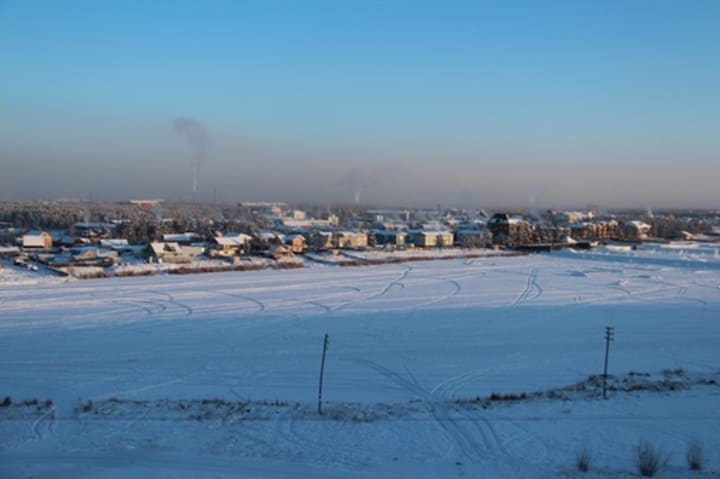
Ingrian Finns were deported, sent to eastern Karelia, central Russia, Siberia and Kazakhstan, under the pretext that they were loyal to Finland and thus a security threat for Moscow if allowed to reside near the Finnish border. Photo: Benjamin Epp, Pixabay. Public domain.
Policing During the Pandemic
2020-2022 There was a police presence to ensure compliance with public health measures in parks where large crowds gathered during the pandemic. Fines of up to C$800 were issued for various infractions regarding social distancing, not following isolating or masking protocols or travelling during isolation periods.
Heads of government who broke the rules were also publicly taken to task, as well as members of the clergy who held religious services during lock-down periods for which they were fined and even arrested for repeated offences …but none of these involved police breaking into homes randomly in the middle of the night.
Ingria, Russia 1934 My Father wrote: One time in 1934, the state police arrived in the middle of the night to conduct a home search…went through the whole house…found some family photographs… told my father to go with them.
My younger brother and I were left at home alone…not allowed to see Father…not knowing where or why he had been taken. He was kept in prison for 3 months before he was brought for a hearing and then released. He had committed no crime: the family photographs were held in suspect.
These nightly raids and imprisonments were a common occurrence during Stalin’s reign of terror. Men, women and their families were arrested or sent away, never to return.
2022 And then as if the world wasn’t already suffering from battle fatigue against Covid, something occurred that no one had anticipated or thought this generation would witness-- Russia attacked Ukraine with no provocation. To those who know Finland’s history, it was eerily similar to Russia’s 1939 attack on Finland.
Having escaped from Ingria as a teen and lived in Finland for four years, my father witnessed the following. He enlisted in the Finnish Armed Forces at the age of 21 and went on to serve Finland in two wars until deployed in September 1944.
Finland 1939 On November 30, 1939, we saw Russian planes flying overhead toward Helsinki, but we didn’t know that a war had begun until we heard the explosion of bombs. The rumours that Finland was under attack were confirmed by those arriving for the next work shift. The "Winter War" had begun, and people began to move away from the city to the countryside and children, including my future wife’s three nephews, were evacuated to Sweden. (From 1939 to 1944 almost eight thousand children were evacuated into Sweden, Denmark and Norway.)
After several months of failed negotiations, Stalin had ordered an attack on Finland with no provocation other than Finland’s refusal to give up territory which Russia was demanding for its own protection.
Russia launched an attack on Finland after first firing on one of its own villages close to the Finnish border and falsely accusing Finland. The truth of this attack was not made known to the Russian people until Krushchev wrote about it in the 1950's.
Stalin claimed he was dropping “bread baskets” to feed the hungry Finns, not bombs. Sound familiar in light of Putin’s claim to his people that this is just a “military exercise”?
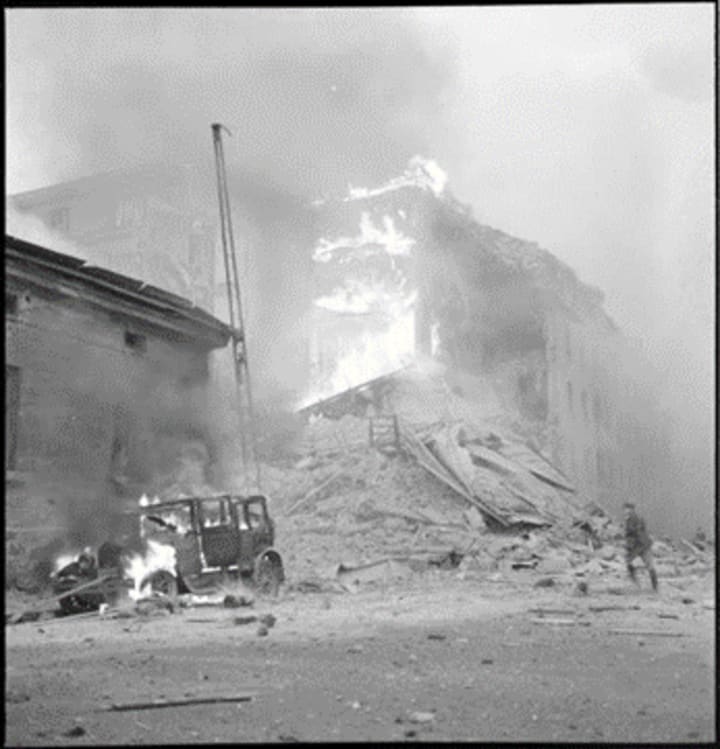
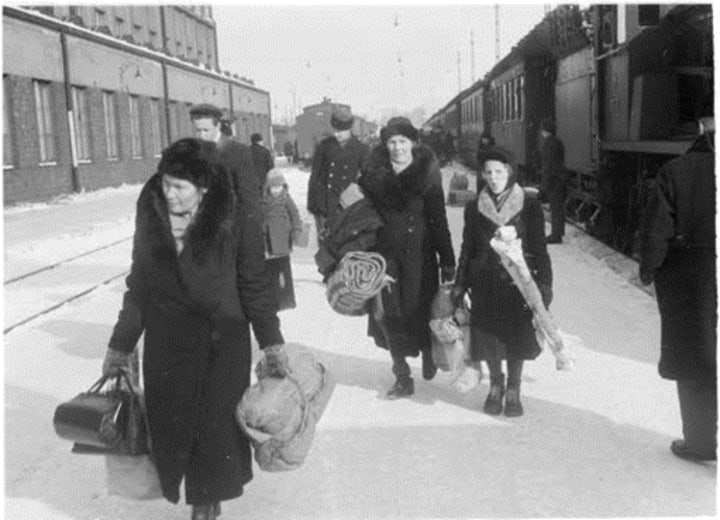
Will the people of Ukraine return to their homeland… and what will be left of it?
So, what was my impetus and purpose for comparing our circumstances and reactions during the Pandemic to those that my father endured? Mainly to illustrate what true government control & repression looks like, what others have endured and been subjected to for far longer periods that we had, and that ours were temporary in the interest of public safety.
It was also my way of venting against lawn signs with message that read, "End the Lockdown" to which I was sorely tempted to knock on doors and ask people what efforts they were making to end them.
And how did my father’s early life affect and shape his fatherhood? Many of his contemporaries, having suffered through the wars and repression, turned to alcohol and become surly and uncommunicative, treating their families harshly.
Not so my father who rejoiced in his new-found freedom and for him, family and family life were sacrosanct. Of all our friends’ fathers, immigrant or not, ours was the most active in his children’s lives.
After acquiring a licence and a vehicle, scarcely a weekend went by without a road trip, exploring places within a day’s driving distance, while we sat in the back seat entertaining ourselves by counting sheep or telephone poles during what sometimes seemed interminably long trips with only 4/60 air conditioning (4 open windows, @ 60 mph).
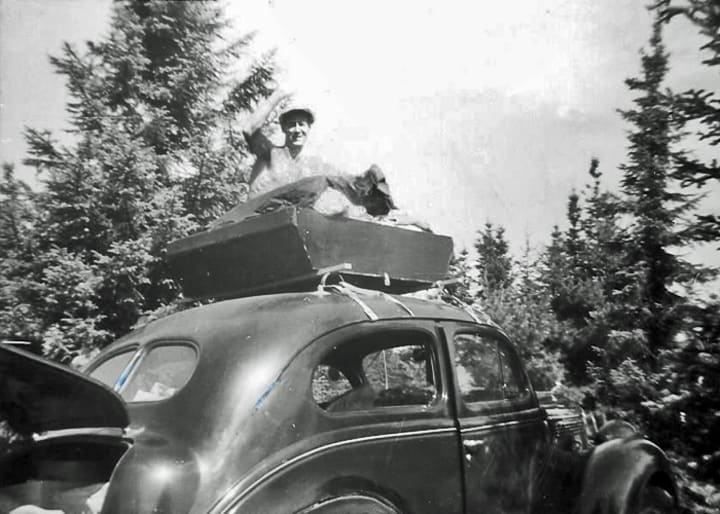
Summer weekends were first spent at nearby beaches in the city on the shores of Lake Ontario and later further afield at Lake Simcoe and provincial parks for weekend camping in a large white army surplus tent. Catching our first fish was a celebrated rite of our childhood passage.
Eventually, having purchased a river-front property, my father single-handedly, built the family a summer cottage that became our new summer destination.
During winter, the backyard skating rink he made became a destination for all our friends. He taught us to ski, at which he was expertly skilled from his years as a member of a highly secretive battalion during the wars, that sent small patrols deep into Soviet territory for weeks at a time to conduct reconnaissance of Soviet movements.
Adult responsibilities had been thrust on him at an early age in Ingria where he’d helped his parents work in the collective farm’s fields or had been in charge of herding the cows to the forest to graze while he picked berries or mushrooms.
He took responsibility naturally to ensure his family’s comfort and safety even in Sweden (where he had been forced to flee after the wars) where he investigated nearby towns when housing was scarce in the city where his first child was born, searching for suitable housing for 4 adults (including his father and his wife’s mother) who were living in the attic of a country house.
When living conditions in Sweden hadn’t improved by the time two more children were born, my father left alone to cross the Atlantic to Canada to see what opportunities there might be for his family. He arrived with 30 dollars in his pocket and even fewer words of English.
Undaunted, he immediately began a job search and within a short while had secured not only a job suitable for his machinist skills, but also a rental house ready for his family's arrival.
Not familiar with the public transit routes, he had set out each morning or evening, according to his work schedule, walking around the city, map in hand, searching for a home for his family.
My father became the family’s prime grocery shopper, a skill he carried over from the days he had helped his mother at the St. Petersburg market selling milk and cream from their cows along with the berries and mushrooms he’d picked in the forest.
He ensured that his children received a spiritual education by taking us to Sunday School and Church. His own family in Russia had been sorely disappointed one Christmas morning to find that their church had been converted into a social club on orders by Stalin, who not only destroyed churches but banished or killed the priests.
Eduaction for his children was also of prime importance so he moved the family closer to the children's schools. His own schooling had been cut short when Stalin closed down the Finnish language schools and the only higher level school, 30 kilometers away from his home, was taught in Russian.
We often sat enraptured while he told us a few stories of his childhood and his war-time venture of sharing bread with Russian villagers while on a secret patrol mission within their borders.
But most of the hardships of his life were not known to us until we read his memoirs decades later as adults.
My father took to fatherhood with great delight finding ways to entertain us with games or building and refurbishing broken toys. He pulled a half-submerged ride-on car from a river to fix up for my brother and refurbished a tricycle for another. It was almost as if he delighted in all the amusements available to his children that had not been part of his own childhood.
We were a close-knit immigrant family with no other relatives close by as they were all on the other side of the ocean. But unlike many other ethnic families we weren’t forced to speak Finnish (which we now regret as we’ve lost facility with it over the years).
Siblings born in Sweden were already conversant in Finnish and Swedish and English just naturally slipped in to become the third language in our home.
In later years, no matter how far from home we eventually came to live, my father was always ready to drive or fly for an extended visit, bringing along his tool kit should there be anything in need of repair.
So what makes a good father? One who doesn't let his past life negatively affect that of his children. One who engages with his children and teaches them new skills. One who accepts that their reality may be (and usually is) different than one that he experienced as a child. One who endeavours to make his children's lives better than his own but also bestows them with responsibilities. One who shares parenting with his wife. One who accepts his children's decisions as to career directions without undue expectations.
My father knew the difference between freedom, repression and "freedumb" (a term coined by a friend) and taught his children that freedom is dependent on social and individual responsibility. His life story could teach the whole world. Good job, Dad!
For my father's full story see: https://www.amazon.com/Crossing-Borders-Refugee-Freedom-Fighter/dp/B09SBRGDL4/ref=sr_1_1?crid=2DAYB3UVSZ2SH&keywords=eva+mckay&qid=1657211083&sprefix=eva+mckay%2Caps%2C88&sr=8-1
About the Creator
Lea Springer
I'll be leaving Vocal for a while. Thank you to all for the great reads & comments on mine. I may be back this winter. Al the best to you everyone. Look for my new book "Where the Bush Planes Flew" on Amazon soon to be published.
Reader insights
Outstanding
Excellent work. Looking forward to reading more!
Top insights
Compelling and original writing
Creative use of language & vocab
Excellent storytelling
Original narrative & well developed characters
Eye opening
Niche topic & fresh perspectives
Heartfelt and relatable
The story invoked strong personal emotions

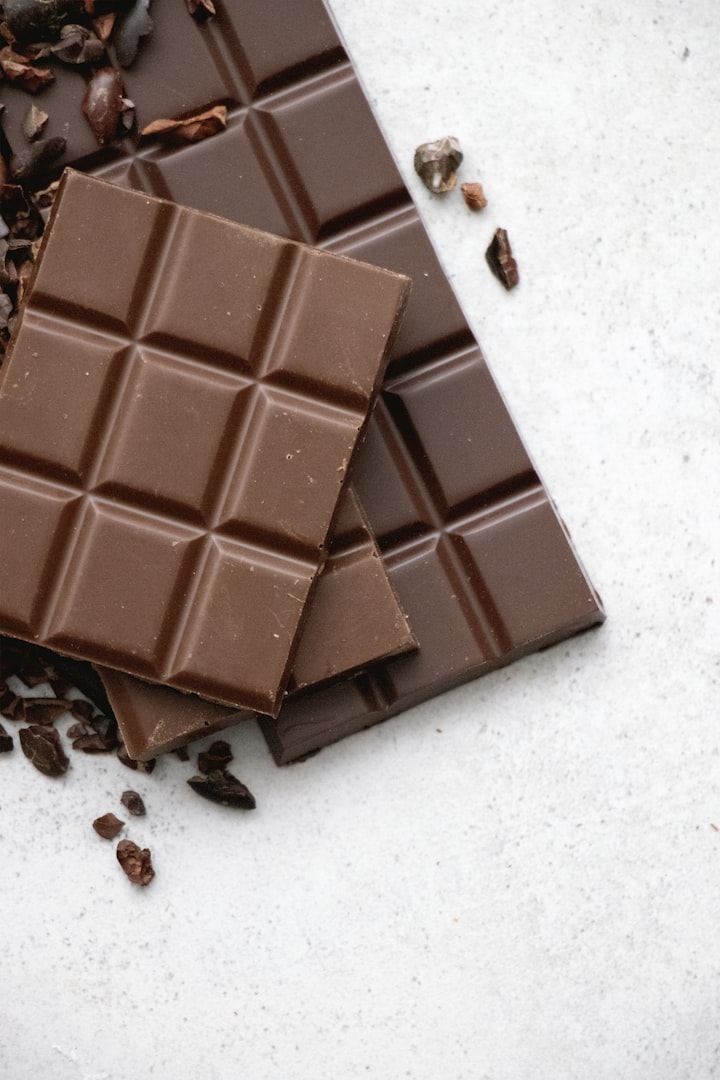



Comments (2)
This is an amazing piece. Kudos to your father. What a life. Thanks for sharing
What an extraordinary life your father had. I’m so glad you shared this and the link to his memoir.